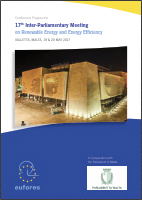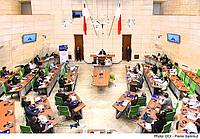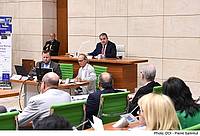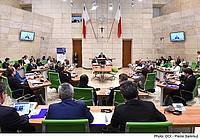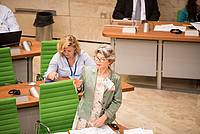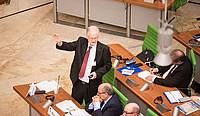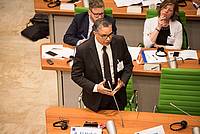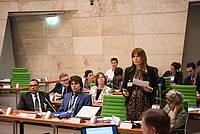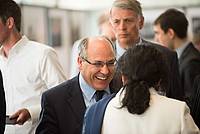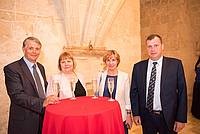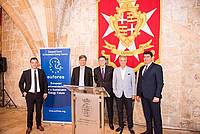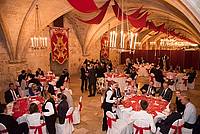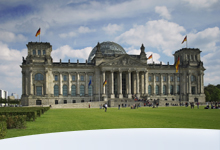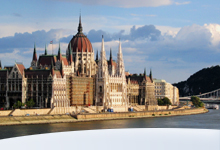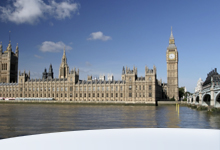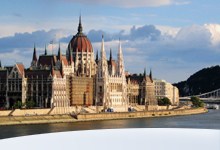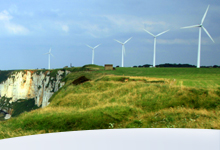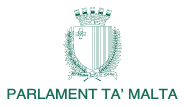Become a member
Join EUFORES here.
EUFORES 17th Inter-Parliamentary Meeting on Renewable Energy and Energy Efficiency - Chapter I
"Energy and Climate Policies in the Mediterranean"
19 & 20 May 2017, Parliament of Malta, Valletta
The first chapter of the 17th Inter-Parliamentary Meeting (IPM17 Valletta) was organised in collaboration with the Parliament of Malta and the Parliamentary Network of the Mediterranean (PAM).
Top speakers from the EU and the Mediterranean region, above all the Maltese Parliament, the European Parliament, national governments, the European Commission as well as industry representatives and many other experts gathered to discuss the role of renewable energy and energy efficiency for the climate change challenge and a sustainable future.
The conference was attended by participants from 20 EU Member States and for the first time also from non-EU countries from the Mediterranean. About half of the attendees were representatives of national parliaments, the European Parliament and national governments.
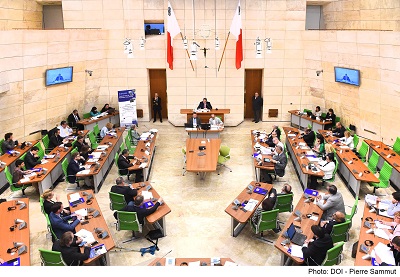
This parliamentary conference had a strong regional focus and looked into the specific situation of the Mediterranean and its neighbouring countries.
The conference was opened by the Speaker of the House of Representatives of Malta, Hon Anġlu Farrugia. In his speech, he stated that clean and sustainable energy is the only viable way forward and mentioned the importance of regional cooperation and relevant policies and measures in order to address current and future climate challenges. Farrugia mentioned that the success of the EU in achieving those goals will also depend on the developments in neighbouring countries. According to the Speaker, the role of parliamentarians will be to build bridges between countries, people, NGOs, the private sector and other key regional experts.
After the opening, Claude Turmes, MEP and EUFORES President, welcomed participants to the 17th Inter-Parliamentary Meeting - Chapter I. During his speech, Turmes stressed the importance of regional cooperation and of new types of partnerships between governments and with society and cities. This way the energy transition could become a reality.
Megan Richards, Director for Energy Policy at DG ENER of the European Commission, presented the key aspects of the Clean Energy for all Europeans Package which are putting energy efficiency as the first fuel and making the EU a world leader in renewable energy.
According to Albert Kaupp, Senior Energy Analyst at SEMETA, regulators and legislators should consider energy efficiency as a new source of energy and should be traded like other resources such as coal, oil, gas and renewable energy. Rafik Missaoui, Director General of ALCOR, presented the energy and climate policies in the Mediterranean. He mentioned that the long-term framework for energy efficiency and renewable energy in the region is the Paris Agreement, but pointed out that most of these countries' contributions are conditioned by international support. He also presented the high objectives for renewable energy and energy efficiency in the region. However, he stressed that there is a lack of enforcement mechanisms which will make these objectives hard to achieve.
On Saturday morning, the conference was dedicated to a session on energy efficiency. Paul Hodson, Head of Unit on Energy Efficiency at the European Commission, explained the specificities of energy efficiency in the Mediterranean, which are linked to water heating and cooling, energy consumption in services and the dependence of islands on diesel generators. Fethi Hanchi, Director of the National Agency for Energy Conservation of Tunisia, presented Tunisian programmes intended to improve the energy efficiency in buildings and stated that even though there are no major technical challenges, the investments that have to be made are very high and there is low economic return.
The meeting continued with a session on renewable energy as the never-ending resource of the Mediterranean. Paul van Son, Chairman MENA and Turkey of innogy, stressed that the energy transition will not happen ‘top –down’, but with regional integration and cooperation. Roberto Ridolfi, Director for Sustainable Growth and Development at DG DEVCO of the European Commission, presented the EU strategy to increase access to energy for development and do it with renewables, to improve the energy sector and to lower risks for investments. This strategy is driven by political ownership of policy reform, capacity building and facilitating investments.
The following session was dedicated to grids and small islands. During this session André Merlin, Former Executive CEO of MEDGRID, repeatedly underlined the importance of the interconnections between the north and the south of the Mediterranean. Luigi Apicella, Manager of the Proposal Engineering Department at Terna Plus, gave a presentation on the Smart Islands Projects. This scheme will enable the replacement of diesel generators, which currently supply all the island’s electric demand, by renewable power plants. Megan Richards contributed to that discussion by explaining the EU Islands initiate, which is based on the optimal use of islands' resources and infrastructures to lower their dependence on energy imports. The strategy is based on using energy efficiency measures in buildings and industry, stablishing micro grids which could be managed from the demand-side and using variable renewable energy sources.
The last part of the conference was a panel discussion on the industrial perspective debating on the question of whether the Mediterranean can be an actor for the supply of renewable energy and energy efficiency.
Presentations of Speakers
Session 1: Welcome and Opening
Megan Richards, Director for Energy Policy, DG ENER, European Commission: Clean Energy for all Europeans
Session 2: Energy and Climate Policies in the Mediterranean after COP21 in Paris
Albrecht Kaupp, Senior Energy Analyst, SEMETA: Energy and Climate policies in the Mediterranean
Rafik Missaoui, Director General, ALCOR: A view from non EU-Neighbour of the Mediterranean
Simone Mori, Executive Vice President, Head of European Affairs, Enel Group: Energy transition in the Mediterranean Region - The perspective of a private investor
Session 3: Country Strategies for 2013
Abderrahim El Hafidi, Secretary General, Ministry of Energy, Mines, Water and the Environment, Morocco: New Moroccan Energy Strategy by 2030
Isabel Soares, Energy Adviser, Cabinet of the Secretary of State of Energy, Portugal: Country Strategy Portugal
Session 4: Energy efficiency - Europe's and the world's first fuel
Paul Hodson, Head of Unit, DG ENER, European Commission: What the EU can offer to its Mediterranean Member States
Fethi Hanchi, Director, National Agency for Energy Conservation, Tunisia: Affordable Near Zero Energy Housing for MEDA
Session 5: Renewables - the never ending source of the Mediterranean
Paul van Son,Chairman MENA & Turkey, innogy SE: From DESERTEC to tailor made renewables in MEDA
Roberto Ridolfi, Director, DG DEVGO, Europan COmmission: A low risk environment for financen RES
Session 6 : Grids and Small Islands
Luigi Apicella, Manager, Proposal and Engineering, TERNA PLUS: TERNA's way to sustainability: Smart Islands Project
Megan Richards, Director for Energy Policy, DG ENER, European Commission: Grids and EU Islands Initiative
IPM17 Feedback questionnaire
We would appreciate if you took the time to give us a short feedback and fill in the feedback questionnaire in order to help us improve our events.
IPM17 Pictures
A larger selection of pictures from both conference days can be found on here.
